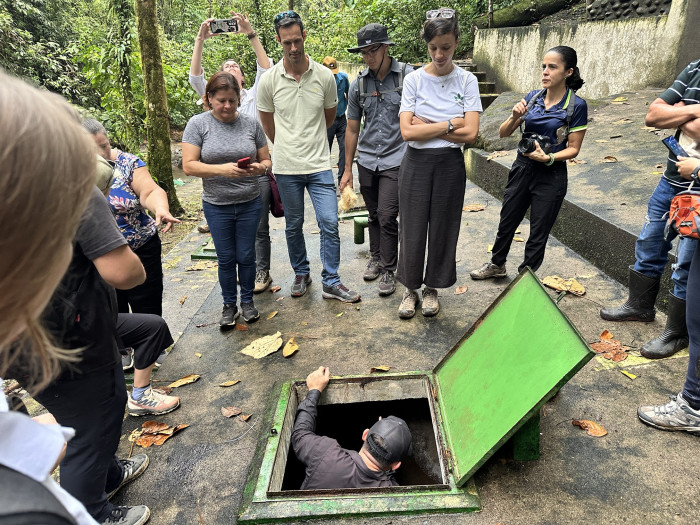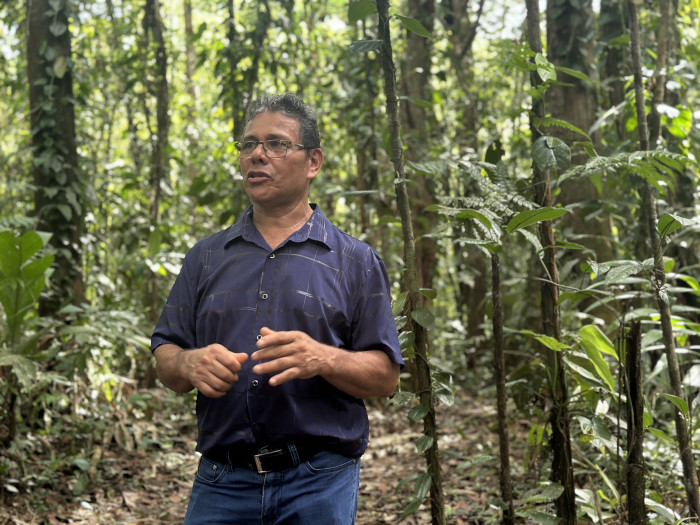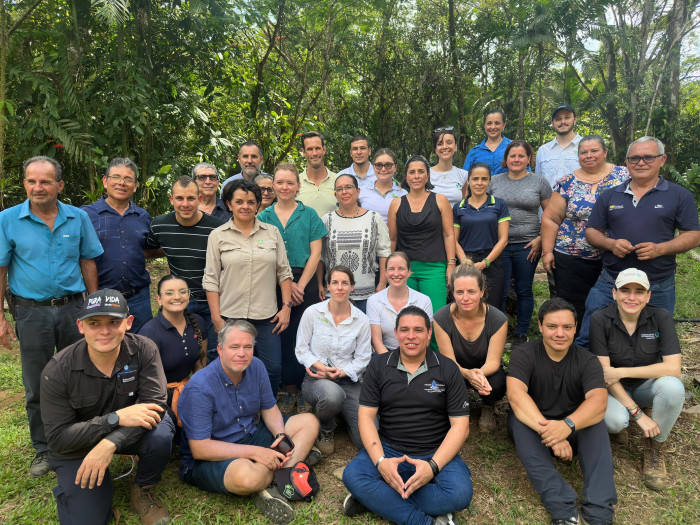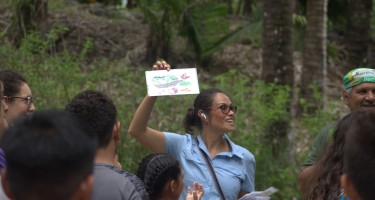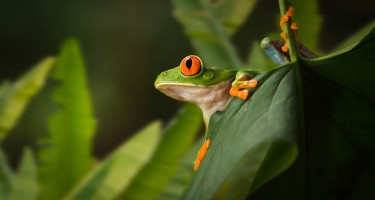Venturing into the nature of IKI impacts in Costa Rica
After a fruitful IKI Workshop with projects from Central America and Caribbean during September 2024 (read more about it here), we ventured into the field to learn about two tangible experiences that demonstrate what IKI projects do in Costa Rica.

© GIZ Costa Rica / UNDP
Experience 1: Scaling up ecosystem-based adaptation measures: Success factors applied to the Costa Rican context
In the canton of Sarapiquí, we learned about the important efforts of the EbA LAC project in protecting the local water resources. In order to conserve the watersheds and water recharge areas, EbA LAC provides technical support to the local Integrated Water and Sewage Systems Administrator (ASADA, due to its initials in Spanish). By obtaining a water tariff that will be applied to water bills, the ASADA will be able to raise additional funds to implement conservation projects. With these funds, it intends to purchase a property where the water sources are located - and thus guarantee the protection of the resource that supplies 20,000 people in the canton.
We also met three winning business ventures of the AdaptACTIVA program, a call for projects with non-refundable funds that promotes the implementation of ecosystem-based adaptation (EbA) measures with seed capital for their financial sustainability in the face of adverse climate change conditions. AdaptACTIVA is supported by the ACTIVA-CATIE innovation and entrepreneurship laboratory, in partnership with EbA LAC and with the support of the Ministry of Environment and Energy (MINAE).
The Óleo Bosque Reserve of Ulises Aguilar and his family was formerly a production site, which took a turn when the family made the decision, around 1986, to contribute to the natural regeneration of the land and later convert it into an ecotourism center. The property consists of 80 hectares, half of which are secondary forests and the rest are primary forests. To date, 40 hectares have recovered naturally. Ulises has planted native trees to attract fauna to return, and stopped the felling of trees that allowed the approach of native species.
At Sujoke Botanical Garden, owner Rodolfo Segura contributes to conserving wild bromeliads and orchids to attract tourism, as well as for research and education. As part of the sustainability process, he takes seized or collected plants to the forests for propagation.
And finally, Silvia Gómez and her business venture Sueño Dorado showed us their initiatives for sustainable dairy production. The productive farm implemented measures to treat the gases emitted by the cows, starting from feeding to the treatment of fecal waste in a biodigester, to produce biogas that is used for other purposes, such as electricity generation. The remaining solid part of the process is used as fertilizer.
EbA LAC is implemented in partnership by the German Development Cooperation GIZ, the International Union for Conservation of Nature (IUCN) and the Tropical Agricultural Research and Higher Education Center (CATIE).
Get an idea of the field trip in the photo gallery:
Experience 2: New generations in sustainable coffee production: agricultural renovation, new technologies and waste management
In Los Santos, San José, we learned about the work of young farmers, winners of the Innova-Verde Coffee Edition Idea Competition of the Transforma-Innova project, who seek to break paradigms and plant the land with environmental awareness.
Through the competition, and, thanks to funding from IKI and the European Union, around 300,000 euros in non-refundable funds were distributed to the 21 selected projects. These can be used for technical advisory services and the purchase of tools and inputs to implement their projects.
One of the beneficiaries is Diana Robles, who focuses on preserving and improving the environment through the use of agroforestry systems and organic fertilizer to achieve sustainable coffee farming. Despite the delay due the rains this year, the young coffee grower and her family were able to restore part of their farm to plant new coffee plants with organic fertilizer and many species of native trees to provide shade.
A few meters away in one of the neighboring coffee farms, the Rojas brothers apply an innovative technological model for sustainable production, permanence and the integration of generations in coffee growing. Multiple sensors at strategic points on the farm measure variables such as temperature, humidity and others that allow them to know where to plant, how to plant and when to care for the coffee plants.
In addition to supporting small and micro producers, Transforma-Innova also works extensively with large coffee cooperatives. In San Marcos de Tarrazú, CoopeTarrazú R.L. decided to innovate with the creation of a bioinsecticide to combat the coffee mealybug (cochinilla), a pest which is much more wide-spread due to the effects of climate change. The microorganism-based bioinsecticide counteracts the mealybug and, at the same time, reduces dependence on agrochemicals.
Transforma-Innova is implemented by GIZ, Conservation International, the United Nations Development Program (UNDP), the CRUSA Foundation, the Environmental Bank Foundation (FUNBAM) and the Tropical Agricultural Research and Higher Education Center (CATIE).
Get an idea of the field trip in the photo gallery:
- Country: Costa Rica
- Project:
- Contact:
IKI Interface project for Central America & Caribbean

